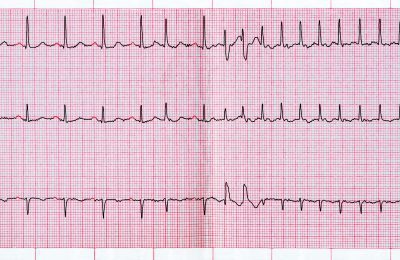
Warfarin and non-vitamin K oral anticoagulants both showed clinical benefit in very elderly atrial fibrillation (AFib) patients, according to a large new Taiwanese cohort study published in Circulation. The researchers, seeking to assess the risk of ischemic stroke and intracranial hemorrhage in very elderly (older than 90 years) patients treated with warfarin and oral anticoagulants, included 15,756 patients over 90 years of age and with AFib in the analysis.
Of those, 11,064 did not have antithrombotic therapy and 4,075 had some form of antiplatelet therapy; 617 patients were being treated with warfarin. The authors then compared 11,064 patients with AFib to 14,658 patients over 90 years of age without Atrial Fibrillation and not taking antithrombotic therapy. There were 2,141 ischemic strokes, 337 intracranial hemorrhages and 14,973 deaths (9,157 in the Atrial Fibrillation group and 5,816 in the non-AFib group).
OACs, and in particular the lower risk of ICH with DOACs compared to warfarin, shown to be beneficial in patients >90 year of age for stroke prevention in AF.https://t.co/kGoxsq3IbR pic.twitter.com/6ygYDCdz9p
— Oliver Segal (@DrOliverSegal) July 5, 2018
According to the results, elderly anticoagulated patients showed no significant difference in ischemic stroke (5.04%/year vs. 5.75%/year; adjusted HR=0.91; 95%, CI, 0.80–1.04). Those taking warfarin, however, were associated with lower ischemic stroke risk (3.83%/year vs. 5.75%/year; HR=0.65; 95% CI, 0.47–0.91). Warfarin was also associated with lower risk for ischemic stroke after adjusting for competing risk of death (HR=0.69; 95% CI, 0.49–0.96).
Huge study of 11064 patients with #AF over age 90. Stroke risk: warfarin=DOAC, warfarin <no treatment or antiplatelets. ICH risk: warfarin >DOAC, warfarin=no treatment or antiplatelets. So best 1. DOAC, 2. Warfarin, 3. Antiplatelets or no treatment. https://t.co/02KMXVAPPH
— Michael Makris (@ProfMakris) July 5, 2018
They researchers also reported that anticoagulant use in this patient population was associated with a reduced risk for intracranial hemorrhage compared to a reference population treated with warfarin (0.42%/year vs. 1.63%/year; adjusted HR=0.32; 95% CI, 0.10–0.97; P=0.044)
http://twitter.com/bmorecardiology/statuses/1014313588654297088
“Compared with warfarin, non-vitamin K oral anticoagulants were associated with a lower risk of intracranial hemorrhage,” they wrote in their conclusion. “Thus, oral anticoagulants may still be considered as thrombophrophylaxis for elderly patients, with non-vitamin K oral anticoagulants being the more favorable choice.”
Observational study from a large database from Taiwan:
No difference in risk of ischemic stroke but a lower risk of ICH (68% competing risk model), when comparing warfarin vs DOACs in age >90. #CardioEd #FOAMed #geriatrics https://t.co/cL9bH7wczW— JK Han MD (@netta_doc) July 5, 2018
Net clinical benefits of non-Vit K antagonist + oral anticoagulants in pts w/AF 90y &>! https://t.co/D9gbRZNj2N@willsuh76 @lamelaspablo @DrAmirKaki @RezaEmaminia@majazayeri @angioplastyorg @ADAlthousePhD @venkmurthy @AlainBouchardmd @AkhilNarangMD @iamritu @mpabrams @aymanka pic.twitter.com/16uVtFsS19
— Rahat Warraich PhD (@rahatheart1) July 5, 2018
Source: Circulation







 © 2025 Mashup Media, LLC, a Formedics Property. All Rights Reserved.
© 2025 Mashup Media, LLC, a Formedics Property. All Rights Reserved.